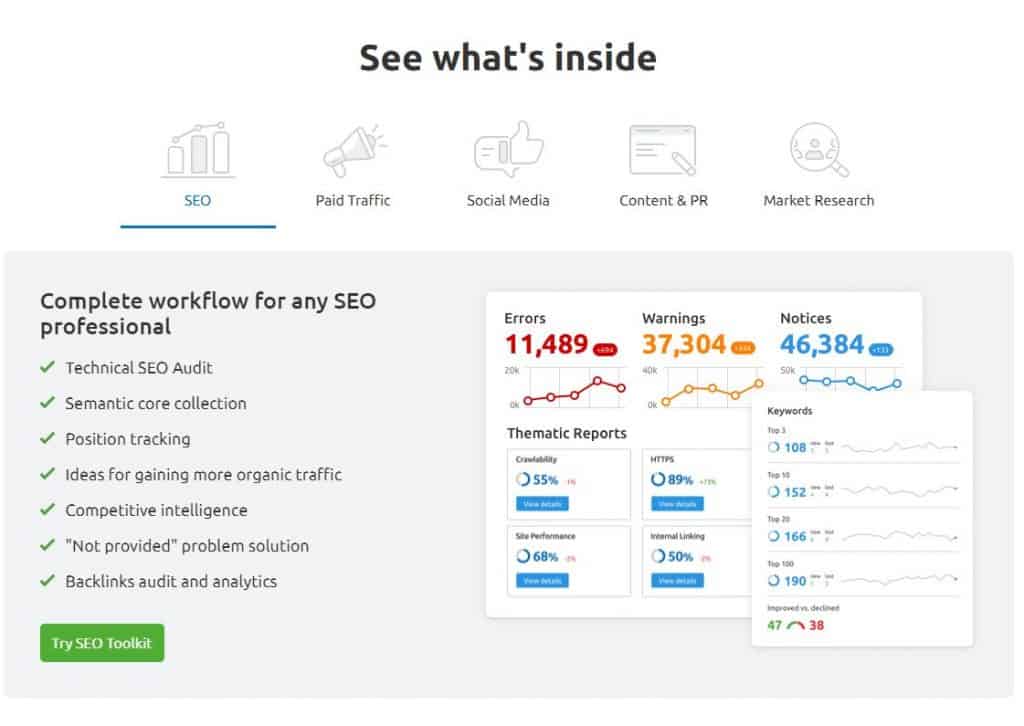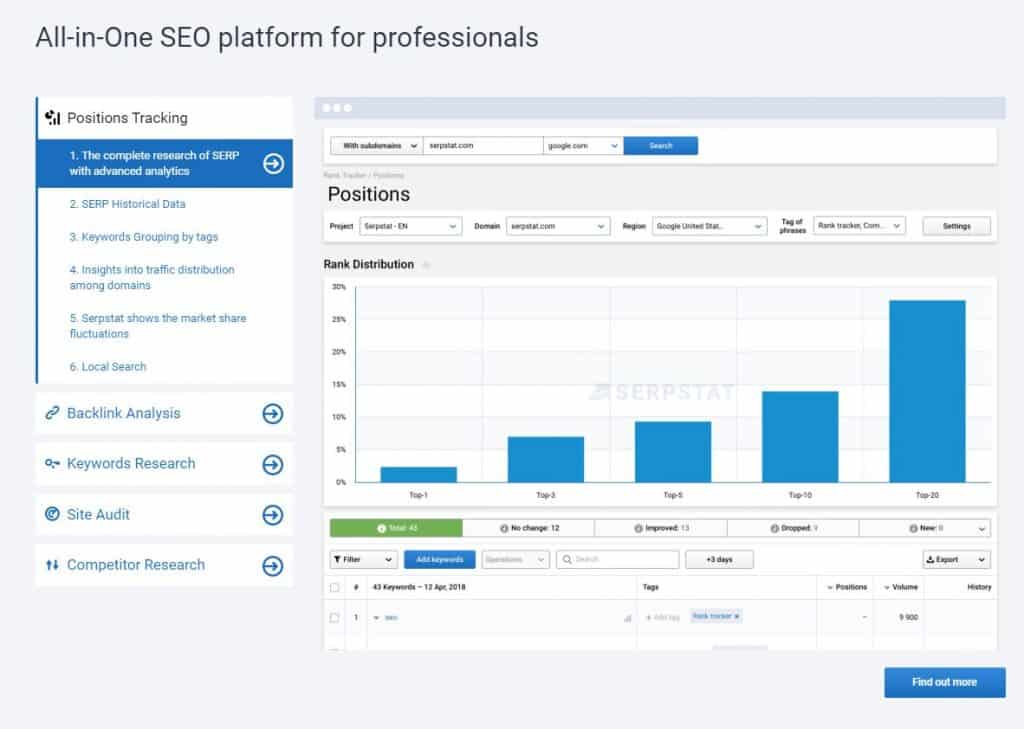Have you ever been tasked to write a blog post or similar piece, but didn’t know where to start? You probably started with a search engine, but it’s become ancient and you need all the tricks up your sleeve to be a better content writer. Check out these 8 amazing free content research tools to see the how’s and what’s of using a search engine for finding keywords.
Research for content writing is crucial. It all starts with the research process itself, though. What is it? What can you do with it to help your content? How does it differ from other types of research? Once you’ve got that figured out, you might need to find some specific research tools to get the job done. So let’s get started!
Google Trends:
Everyone loves Google and Google Trends even takes that up a notch. One of the best free tools for content research, it is definitely worth checking out. Basically, you can see what everyone is searching for. You can see recently-trending searches, what was most searched for in past years, and then there are stories about big topic searches like Coronavirus and the 2020 American census. Even cooler, you can check out the data visualization project, where you can use data to tell in your own stories. This service is free and opens up the gates for you to find very trending topics that you can take and make use of in your content.

SEMrush:

SEMrush is a comprehensive suite of SEO article writing tools for researching keywords and analyzing competitors. It is one of the most popular SEO research tools on the market because of the in-depth data it delivers.
If you want to learn which keywords you are currently ranking for, you can search your URL in SEMrush’s organic research tab. On this page, you can see the traffic you are earning and an estimated value of that traffic. Additionally, you can click to view your positions for different keywords. This will let you know how effective your SEO article writing and other activities are. You may also discover new keywords that you are ranking for without targeting.
The same works for examining competitor’s websites. This is a great way to find some keywords that you wouldn’t have otherwise considered.
You can also get a keyword gap report. This shows you keywords that many of your competitors are ranking for but that you aren’t currently targeting.
Google AdWords: Keyword Tool
All research starts with keywords, so if you haven’t already conducted thorough keyword research for your business, I recommend this as your very first step. The Google AdWords: Keyword Tool is one of the best free keyword tools available to marketers. This tool is tied directly into Google AdWords, and it uses approximate search frequency from Google (read: don’t rely too heavily on this search frequency data).
This tool can tell you which keywords are searched more than others based on broad, exact or phrase match volumes, depending on your settings. You can also view local (U.S.) or global data, which is essential for some location-based businesses. Additional data includes local search trends and location and languages for international research.
Overall, the Google AdWords Keyword Tool is extremely useful for the optimization part of any content marketing campaign. It is imperative to optimize your compelling content, otherwise, it may not be found.
Typeform:
Collect data from your audience in a very fun and interactive way with this free survey tool.

Exploding Topics – A new player on the scene, this service lets you see trends that are blowing up (exploding) before they get big. With this type of service, you can write your content before all the major players do, so that your content is trending first. The cool thing about this site is that you actually get a topic to work from, not just a keyword and you can tailor your titles accordingly. This site does not yet have a cost and looks like a great resource for any marketer or content writer.
“The best way to find trending topics for your ecommerce blog is to use the new tool called Exploding Topics. This tool searches the web for topics that have a recent and sharp rise in popularity but are not yet popular simply because they’re so new. So the idea is to create content on the topic before it takes off, while having proof that take off is imminent. Powerful stuff as you’ll be battling against no one for the top spot.” – Nikola Roza
Google Keyword Planner:

Google Keyword Planner is almost the total opposite of SEMrush. It is very simple, with only limited features. However, it is available completely for free provided that you have an AdWords account.
This SEO keyword research tool benefits significantly from being produced by Google. It is one of the most accurate sources of information about keywords and SEO on the market. Even the most expensive paid tools struggle to offer the same level of precise information.
Using the keyword research tool, you can get suggested keywords based on ones you may already be using. You can also research keywords to see insights such as keyword search volume. If you intend to also use your SEO keywords for a paid ad campaign, you can get an estimate of the necessary bid to get your ad seen.
Soovle:
This is a great little site to help quickly generate ideas. All you need to do is enter a keyword phrase and Soovle will display keyword suggestions from up to 15 different websites. You are able to customize which sites are included, which can be useful depending on your niche. For example, Amazon and eBay are choices, so if you are in the ecommerce business, these choices make more sense for your research.
This tool is helpful for researching quickly across a number of platforms. You also have the ability to save searches, making it easy to see how keywords have performed over time. This tool provides a different keyword research perspective compared to the Google AdWords tool.
SurveyMonkey:
Another giant survey tool, use it to collect responses in a fast and easy way.

Ubersuggest
here’s an Uber for everything now, it seems. And with this one, comes the advice of the lovely Neil Patel. With this service, you can see what your competitors are doing right (and wrong) so you can follow suit. Of course, you’ll want to do better than they are and improve upon their tactics. You’ll get SEO reports, keyword suggestions and even content ideas from what’s being most shared in your niche. The pricing for this is on the low-end of the scale for similar tools.
If you don’t want to purchase expensive tools for content research, don’t have the bandwidth to learn how to use them, or just don’t want to bother, the experts on our team can help. We have purchased these tools for content research so you don’t have to. Our team can use them to strategize the best topics for your blog or social media and then we write them. Reach out to find out how we can take this work out of your hands.
Serpstat:

If you want more than just keyword research, Serpstat should be on your radar. It is a full SEO suite that combines keyword research, website analytics, SERP analysis, rank tracking and more.
Compared to similar SEO research tools, Serpstat is more oriented to individual page analysis. You can define missing keywords on a page-by-page basis or for an entire URL. It has tools for analyzing competitors as well as seeing how your pages are ranking. The unique “tree view” helps you find the search terms for which have nearly reached the top 10 search engine results page. This can help you refocus your article writing.
One of the best features in Serpstat is its filter. You can set parameters to drill down your research and find exactly what you are looking for. SEO keyword research can often involve a lot of data, so having this effective filtering functionality is very helpful.
Topix.Com:
Topix.com is a helpful resource for anyone looking for content ideas. Just enter a search term and the Topix engine will produce results that include news articles, forums, question-and-answer sites and blog posts that relate to your keyword.
The variety of search results allows you to find a vast amount of information from all over the world in just a few seconds. If you’re looking for geo-specific results, Topix allows you to set a location to get local results, making this idea engine a content marketing research hotspot for local, national and global businesses.
Zoho Survey:
Zoho gives you an option of 200 free survey templates to make your survey engaging and running fast.

Conclusion:
Researching content is a tricky thing. You have to know your stuff for it or you can quickly be caught up in a “circle of content suck” that sucks the life out of your writing career. I have been writing content for a long time now and I love it because of all it can do for us as marketers. But with this love, also comes pain. Pain of devoting long hours to write blog posts, ebook pages and white papers; of spending weeks researching; and still coming up short on good posts.
